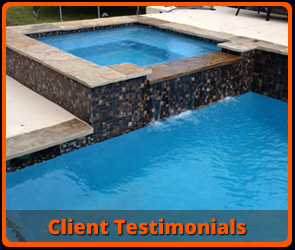There are countless benefits to having your own swimming pool. Swimming is an activity that has tons of benefits for both your physical and mental health, and having a swimming pool is an awesome way to spend time with your friends and family.
Given all that, it’s no wonder that swimming pools have become something of a craze during the coronavirus pandemic. If you’re looking to make your home an oasis no matter what’s happening in the outside world, you might be starting to wonder about swimming pool financing.
There are lots of different ways to finance a pool, but some of them might make more sense for your circumstances than others.
Are you wondering how to finance a swimming pool? Stick with us while we explore what you need to know.
How to Finance a Swimming Pool
There are a number of ways to make your swimming pool dreams a reality. Let’s take a look at the options.
Swimming Pool Loans
You can get a personal loan or a “swimming pool loan” from credit unions, banks, and other financial institutions. If you are approved for the loan, you will receive payment in the form of a lump sum.
At Sahara Construction and Custom Pools, we partner with a number of different financial institutions to help you make your dreams of a backyard pool come true. You can learn more about financing options here.
If you’re wondering how to afford your pool in the quickest way possible, a personal loan might be the way to go. This is commonly a faster option than the others we will list below. The application process is also often simpler and you can usually expect to receive funds in a number of days or within a week.
When you get an unsecured personal loan, it means that you aren’t using your home or other assets as collateral. That means that you don’t risk foreclosure if you run into issues making payments. Because they are unsecured, these loans typically have a higher interest rate than some of the other options.
Home Equity Line of Credit (HELOC)
This is a loan that is secured by the equity of your home. A revolving credit line, you can think of a HELOC much like a credit card. If you end up being approved for this type of credit, you can have access to the funds you need for your swimming pool and then pay it back over time.
With a HELOC, you only pay interest on the amount of money you borrow. The monthly payments you are required to make are based on the amount of money you withdraw from the account.
These often have lower interest rates than personal loans and credit cards because the loan is secured by your property. You might even be able to deduct the interest on the loan when it’s time to pay your taxes.
This is also a relatively quick method when it comes to how to finance a swimming pool. The funds can usually be received within weeks.
The drawback of this type of financing is that it’s common for the interest rate to be variable. It will also increase your overall mortgage balance and can make it difficult to refinance in the future. Also, you risk losing your home if you fall behind on payments.
Home Equity Loan
A home equity loan is quite similar to a home equity line of credit. It is also a kind of second mortgage. It’s different in that you receive a one-time lump sum rather than accessing a line of credit when you need it.
Home equity loans have a fixed payment and interest rate as opposed to the variable rate of HELOCs. The interest rate also might be lower than both personal loans and HELOCs. The process for getting approved can be more affordable and faster than a cash-out refinance.
On the downside, this loan comes along with closing costs. It’s also secured by your home, so failing to pay could lead to your losing your house.
Cash-Out Refinance
If you are planning on refinancing anyway and you are working to finance a pool, you might choose to get a cash-out refinance. You are allowed to borrow up to 80% of the equity of your home, which means that if you have a lot of equity you can easily finance a swimming pool through this method.
Many people choose to refinance when it means they can change the loan term or their interest rate. That being said, refinancing means going through the mortgage process all over again. That means that your credit score needs to be high enough to qualify and your finances need to be in order.
There are closing costs when it comes to refinancing you will want to consider. This usually amounts to between 2% and 5% of the amount of the loan. This is a new mortgage for your home, which is a secured loan. That means that foreclosure can result if you can’t pay back what you’ve borrowed.
What to Consider When It Comes to Swimming Pool Financing
One of the prime concerns when it comes to applying for pool financing is your personal credit. You will receive a better interest offer the higher your credit score is. It is common for lenders to give their best offers to borrowers that have credit scores somewhere around the mid-700s and even higher.
The method you choose for pool financing will have an impact on the length of the loan term. However, it isn’t uncommon for lenders to allow loan terms to be as long as ten years or more.
You will want to account for all of the associated costs of owning and maintaining a pool when you are deciding on financing. It is typically a good idea to leave some buffer room when you are estimating your expenses. It is easy for there to be unanticipated costs when it comes to a renovation such as a pool installation.
Are You Thinking About Installing a Pool?
At Sahara Construction and Custom Pools, we are dedicated to ensuring that you receive great value for your investment nd that you receive the highest quality service when working with us. Whether you’re still thinking about swimming pool financing or are ready to break ground, sign up for a free consultation today.




